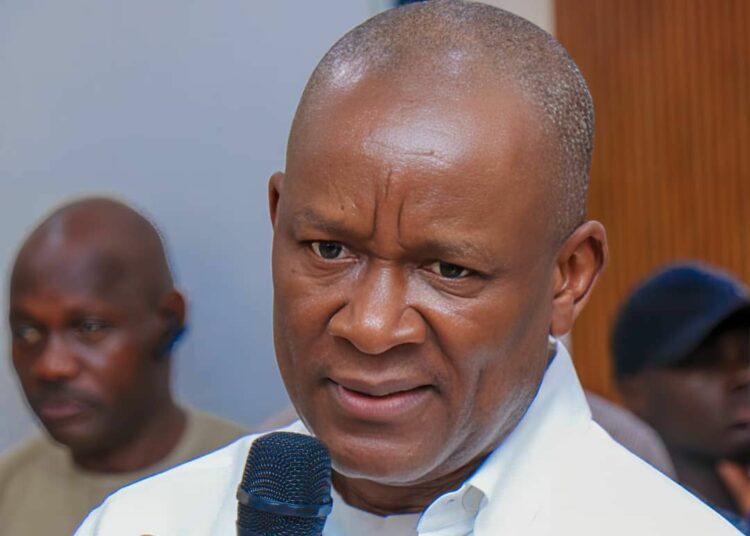The disappointment of Paris 2024 ignited a conversation that is long overdue about Nigeria’s sports. The introspection prompted by Nigeria’s performance at the Olympics provides a rare and vital opportunity to address the structural issues that have hampered our athletes’ potential.
As the nation reflects on what went wrong, there must also be focus on the path forward aimed at ensuring that the lessons learned translate into meaningful, lasting change.
For the first time since 2012, Nigeria sent over 80 athletes to the Paris Olympics but failed to secure a single medal—a deeply concerning situation. The team faced administrative challenges, poor technical decisions, and disappointing performances.
This outcome starkly contrasts with Nigeria’s best Olympic performance at the Atlanta 1996 Games, where the nation won six medals, including gold in men’s football and women’s long jump. Despite having a talented roster, the closest Nigeria came to medaling in Paris was in athletics, where a few athletes reached the finals but ultimately did not make it to the podium.
However, Beijing 2008 Olympic medallist Chika Chukwumerije has urged Nigerian athletes who competed at Paris 2024 not to see themselves as failures. He encouraged them to recognise their achievements and focus on future opportunities, particularly at the Los Angeles 2028 and Brisbane 2032 Olympics.
“As the team captain of the London 2012 Olympics, I relived that experience as the Paris 2024 Olympics went on, and my heart goes to all our athletes. From me to you, here is a big, warm hug. You have done well. You are not ‘failures.’ Remember, you are African Champions, Commonwealth Champions, and National Champions. You qualified for the Olympics, and in a world filled with billions of people, that makes you unique,” Chukwumerije told Sports Africana.
Senator John Owan Enoh’s candid assessment of Nigeria’s Olympic performance is a clear signal that the era of complacency is over. His acknowledgment of the lapses, particularly in the preparation phase, underscores the need for a fundamental shift in how we approach sports development in Nigeria.
The minister’s call for a thorough overhaul of the system, from grassroots sports to elite athlete preparation, resonates with the urgent need to rebuild the sporting institutions. Interestingly, this call isn’t new.
Still, one of the most glaring issues highlighted by the Paris 2024 experience is the absence of sustained, strategic planning. In countries that consistently excel at the Olympics, preparations begin years in advance, with meticulous attention to detail. For Nigeria to compete on the global stage, this level of commitment must become the norm, not the exception.
Grassroots sports development is the foundation of any successful national sports program. The decline of primary and secondary school competitions, once the bedrock of talent discovery, must be reversed.
Reviving these competitions will not only rekindle interest in sports among young Nigerians but will also provide a pipeline of talent that can be nurtured and developed over time. Similarly, the Nigerian University Games Association (NUGA) must be revitalised, with adequate funding and support to ensure that it continues to play its critical role in talent identification and development.
In addition to grassroots development, there is a pressing need to improve the infrastructure and resources available to athletes. World-class training facilities, access to top-tier coaching, and opportunities for international competition are essential if our athletes are to compete at the highest levels. The Tinubu administration’s commitment to sports development must include significant investment in these areas, ensuring that Nigerian athletes have the tools they need to succeed.
Furthermore, the issue of leadership stability within sports organisations cannot be overstated. Frequent changes in leadership, coupled with a lack of capacity building among sports administrators, have created an environment of uncertainty and inconsistency. For Nigeria to build a successful sports program, there must be continuity in leadership, along with ongoing training and professional development for those tasked with managing our sports institutions.
The Paris 2024 Olympics also shed light on the importance of integrity in sports. The fact that no Nigerian athlete was involved in doping scandals is a positive takeaway, and it speaks to the ethical standards that must be maintained as we rebuild. Clean sports are not just about avoiding penalties; they are about fostering a culture of fair play, respect, and honor that will inspire future generations of Nigerian athletes.
As we look to the future, the focus is on the next major sporting events: the Paralympic Games and the 2028 Los Angeles Olympics. The Paralympics, in particular, have historically been a source of pride for Nigeria, with our athletes consistently excelling in powerlifting and athletics. This tradition of excellence must continue, and the lessons learned from Paris 2024 must inform our preparations for both the Paralympics and future Olympic Games.
As the nation turns the page on Paris 2024, a renewed sense of purpose couldn’t be more essential. The challenges are significant, but they are not insurmountable. With the right leadership, investment, and commitment, Nigeria can reclaim its place on the global sports stage, not just as participants, but as champions. The future of Nigerian sports is bright, and with the lessons of Paris 2024 as guide, it is can achieve greatness once again.
We’ve got the edge. Get real-time reports, breaking scoops, and exclusive angles delivered straight to your phone. Don’t settle for stale news. Join LEADERSHIP NEWS on WhatsApp for 24/7 updates →
Join Our WhatsApp Channel










